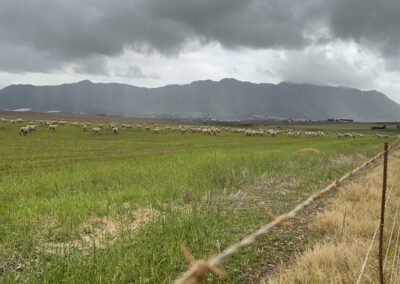2019 is a landmark year for South Africa with Carbon Tax Regulations coming into effect by the middle of this year. Make sure you are in the know and stay up to date with the upcoming deadlines. If any of the following dates apply to your company, be certain to diarise them and start preparing to ensure you are ready when they do arrive.
31 March: Deadline for Mandatory Green House Gas Reporting
What is Mandatory Green House Gas Reporting?
The National Department of Environmental Affairs gathers information from businesses that have the capacity to exceed a certain green house gas emissions threshold. This is in line with international commitments to update and maintain a National Greenhouse Gas Inventory. At the same time this database provides SARS with information regarding carbon tax liable entities. The reports which are due by 31 March 2019, must be submitted in a prescribed format that differs from conventional corporate calculation methodologies such as GHG Protocol Corporate Standard and ISO14064.
Does it Apply to my business?
Companies are required to report if their installed capacity exceeds the applicable threshold for a specified activity. For example, for energy generation, this is typically 10MW total installed capacity. So if your company has 5 X 2MW coal boilers or 10 X 1MW back up diesel generators, you are above the threshold and have to report.
If you are uncertain whether you are required to submit a Mandatory Green House Gas Report, or if you would like guidance throughout the reporting-process, please do not hesitate to contact us.
1 June: Implementation of Carbon Tax Regulations
What are the Carbon Tax Regulations?
A carbon tax is a fee imposed on greenhouse gas emissions, caused by activities including the combustion of fossil fuels, emissions associated with certain chemical processes and fugitive greenhouse gas emissions. A carbon tax is globally recognized as a core policy-instrument for reducing and eventually eliminating the use of fossil fuels. Finance Minister Tito Mboweni introduced the Carbon Tax Bill in the National Assembly in November 2018 after a culmination of eight years’ worth preparing and stakeholder consultation processes. The bill which is aimed at reducing fossil fuel emissions in South Africa will come into effect on 1 June 2019. Businesses who emit beyond a certain threshold will be forced to implement greenhouse gas mitigation strategies, to engage with carbon offset solutions or pay the tax-rate at R120 per tonne greenhouse gas emitted.
Does it Apply to my Business?
Only companies who are required to submit a Mandatory Green House Gas Report will be liable for carbon tax. Companies that are liable can be awarded relief when purchasing carbon tax offsets. By doing so, a company can pay up to 20% less in carbon tax.
Our carbon tax solutions include a Carbon TaxScan which helps you measure and understand how much carbon tax your business might have to pay, a Carbon TaxCoach which helps your company lower its carbon tax liability, and a wide selection of South African Carbon Offsets.
Take a look at our Carbon Tax Q&A to find out more.
Owners of emission reduction projects with a hidden carbon component should act now to be able to meet the expected demand for offsets under the carbon tax. Do you have a project that you think could generate carbon offsets? Or do you have an existing (CDM) project that you are not sure whether you could trade the offsets under the carbon tax? Find out more about our carbon credit purchases and project development services.
Stay on top of your businesses’ role in these upcoming dates. Contact us to find out how we can assist to ensure that you comply with regulations and become a climate leader.



